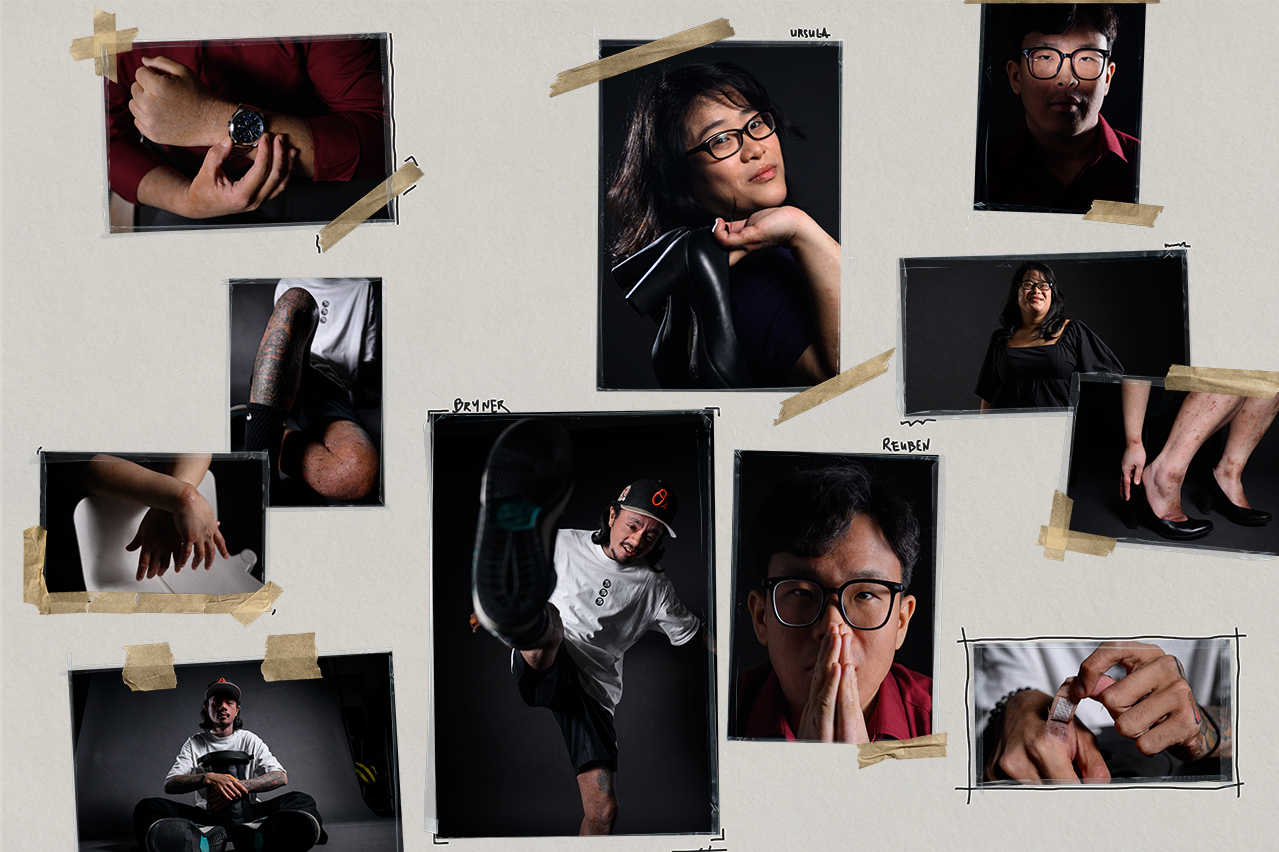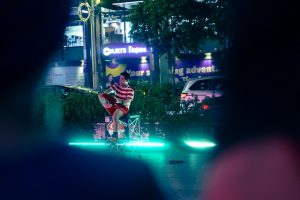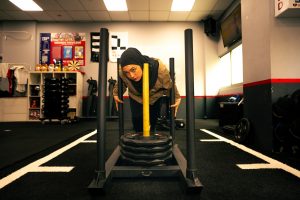All images by Benjamin Tan for RICE Media
Scratching an itch is second nature to everyone, as natural and unconscious as breathing. For us mere mortals who suffer from chronic eczema, however, scratching is a luxury we cannot afford.
Most people don’t have to think of their skin much beyond pimples, acne, and the occasional sunburn. But just imagine for a moment having a lifelong condition of dry, itchy, and inflamed epidermis and having no choice but to be chronically aware of your fragile skin.
Then imagine having frequent flare-ups from the heat and humidity because, well, we’re living in Singapore.
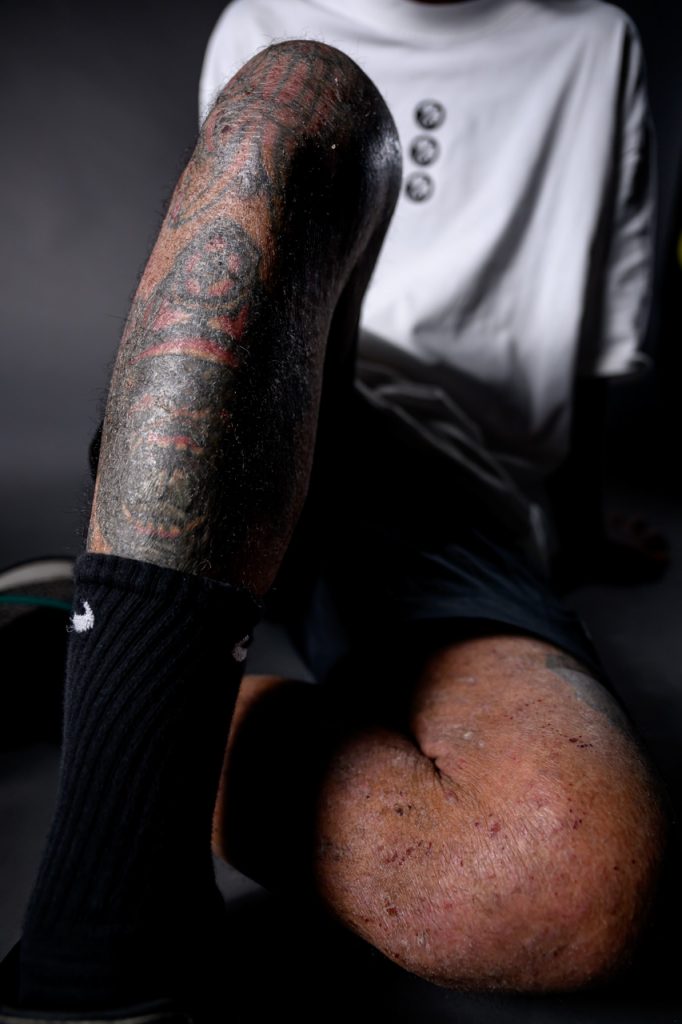
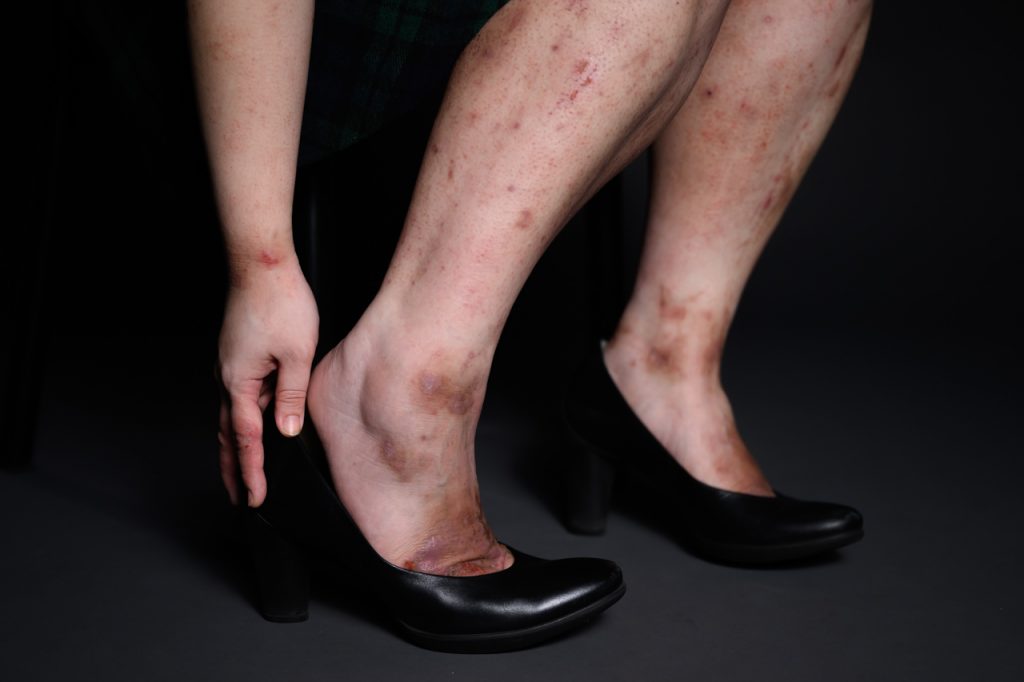
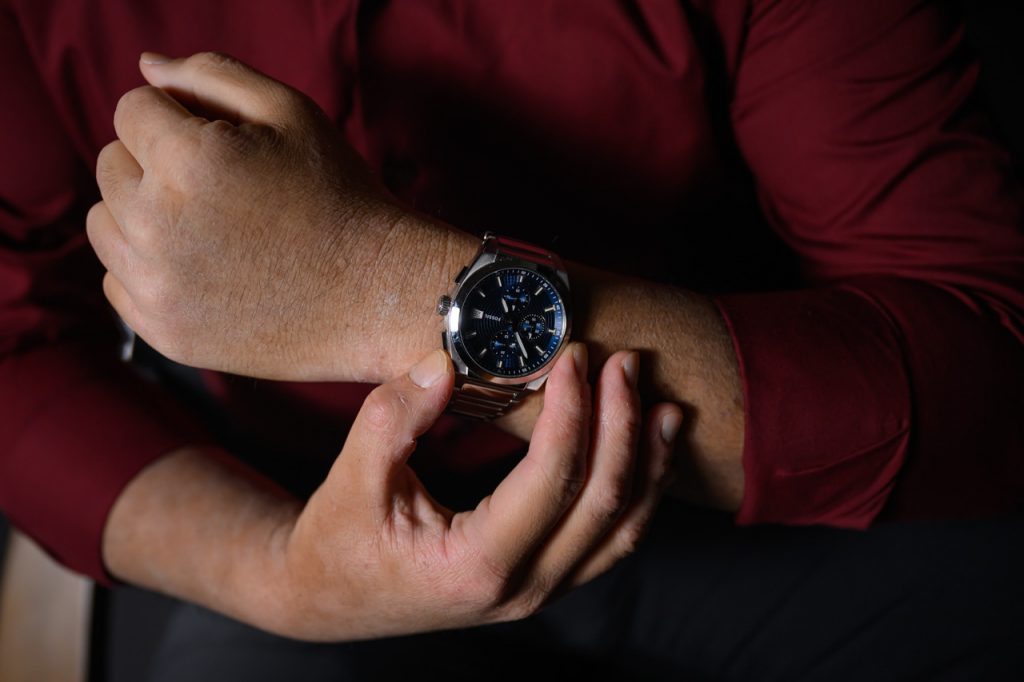
I should know. Eczema was one of the most significant issues I’ve had to grapple with during my formative years. I had outgrown it during secondary school, but it made a major comeback when I started work; no thanks to the stressful moments my ex-boss showered upon a fresh graduate like me back then.
I recall the burning sensations on my body and limbs, coupled with pus oozing from affected areas. Unable to resist, I scratched at my dry skin, only to find the cycle repeating once the fleeting relief passed. Surprise, surprise, the eczema slowly went away after I left the job.
I’m thankful that the degree of my condition now isn’t as bad as it was. But every now and then, I’m reminded of the inconveniences this skin of mine put me through.
Others may not have the same luck. It’s unfortunate that they, like me back then, have to suffer silently as we quietly tear at our own flesh and literally bleed for a condition we were born with. The worst part about having eczema, I think, is feeling utterly powerless and realising how few people understand what we go through.
I’d like to change that. I invited three Singaporeans to tell the world how they’ve navigated their lives with eczema.
Like a Sore Thumb
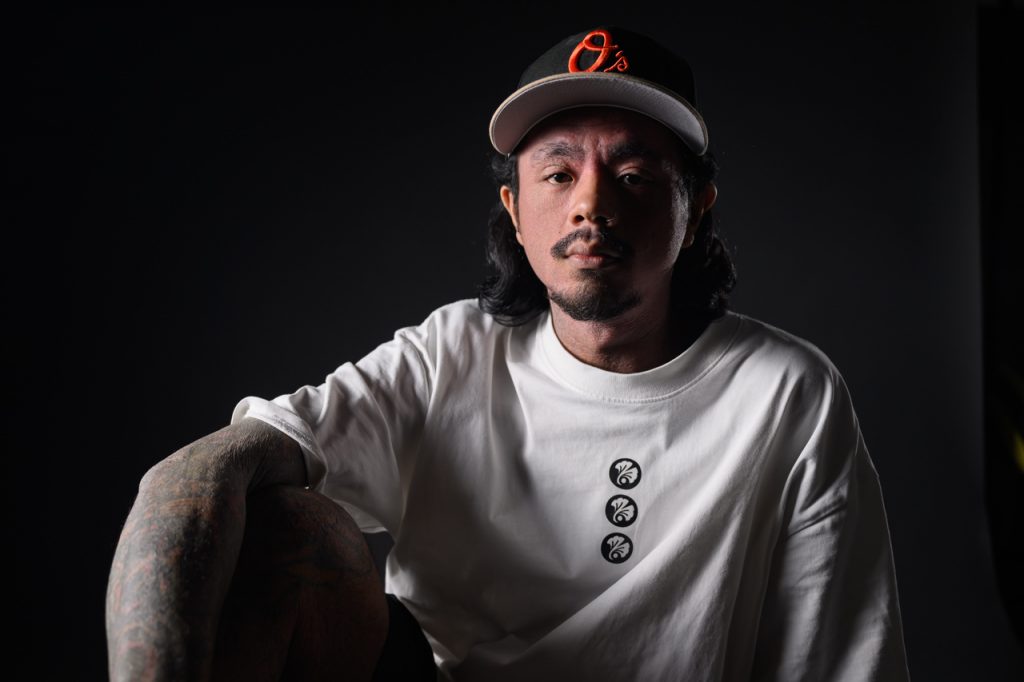
Bryner Tan, 30, is a content creator and social media manager for Grease Monkey Barber Garage by day. By night, he puts on his gear and photographs the local music scene.
When I met him for the first time at the photo studio, I was surprised at the number of tattoos this dude is pulling off.
“Not pain, meh. When you have eczema and do tattoos?”
“It is lah. I also scratched when the skin was scabbing during the healing stage. By right, I’m not supposed to.”
Even with tattoos on, his eczema was prominent. With visibly red, scaly skin, you don’t just have sore thumbs—you stick out like one too. Bryner is well aware that his eczema attracts more than a fair share of longer-than-appropriate stares and occasional verbal reactions in public.
Bryner’s recent recollection of reactions to his skin was from a mother and child on a train.
“The mum wanted to sit beside me, but the kid stared at me and pulled the mum away.” It’s how a kid would react if he saw flaking skin and patches of pus. While already used to seeing such reactions, Bryner admits he still feels angry about it.
“In my head, I was uncomfortable about it, like, it’s not going to spread to you, right?”
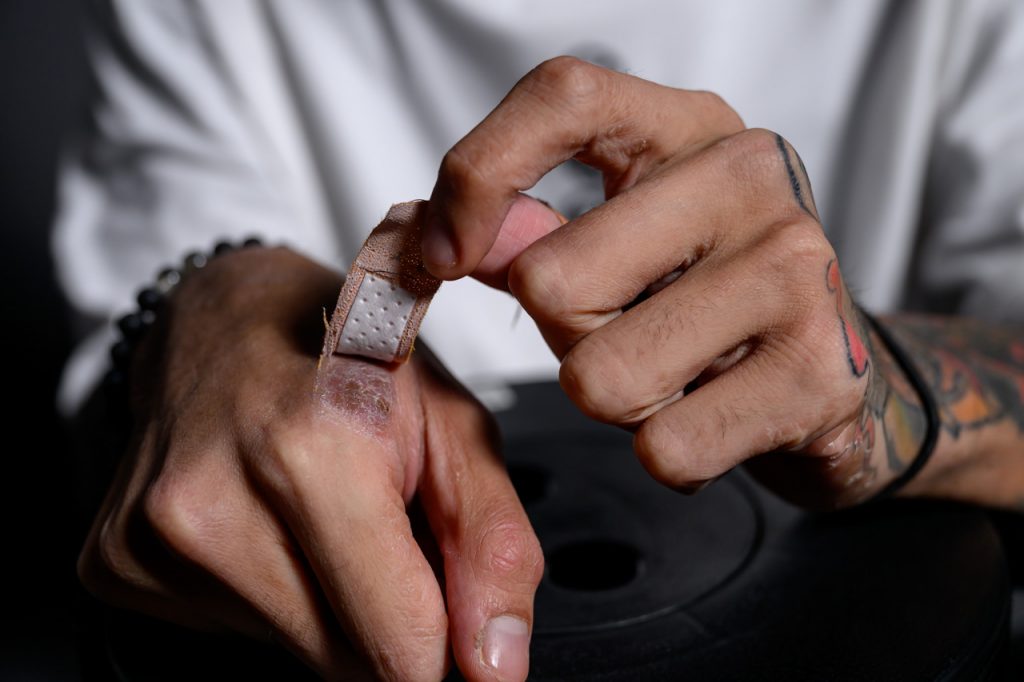
Meanwhile, 33-year-old Ursula Soh struggles with eczema rashes adorning her limbs and back. Concealing them under clothing is no simple task, leaving her vulnerable to unsolicited advice from random people eager to offer their own supposed expertise for her skincare struggles.
She found herself constantly approached by people offering unsolicited advice on skincare routines, often accompanied by enthusiastic recommendations for various products they swear by.
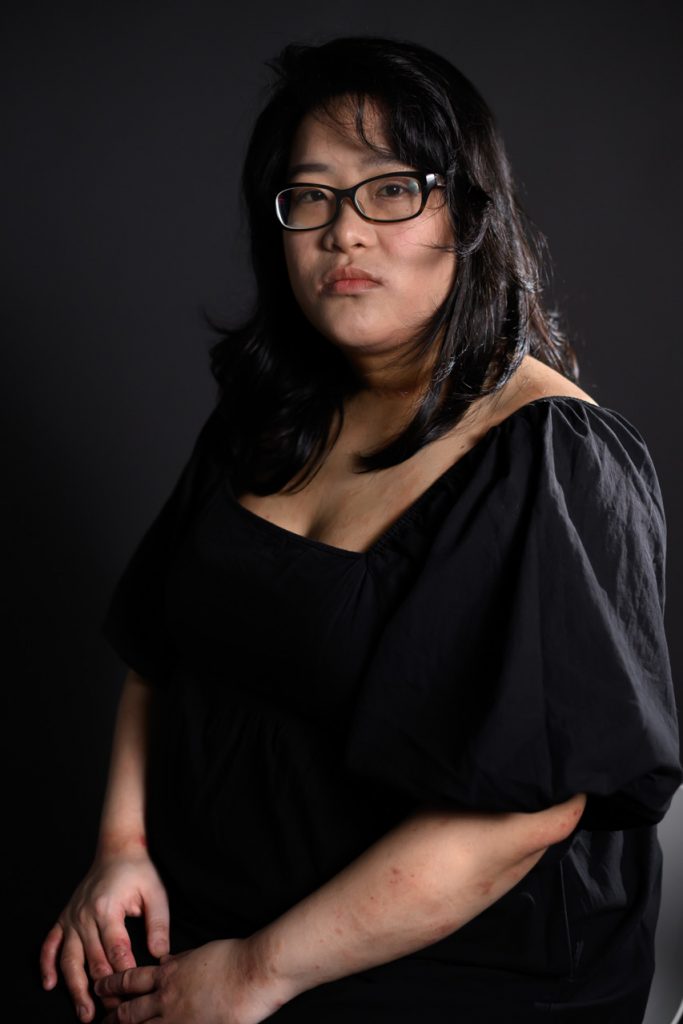
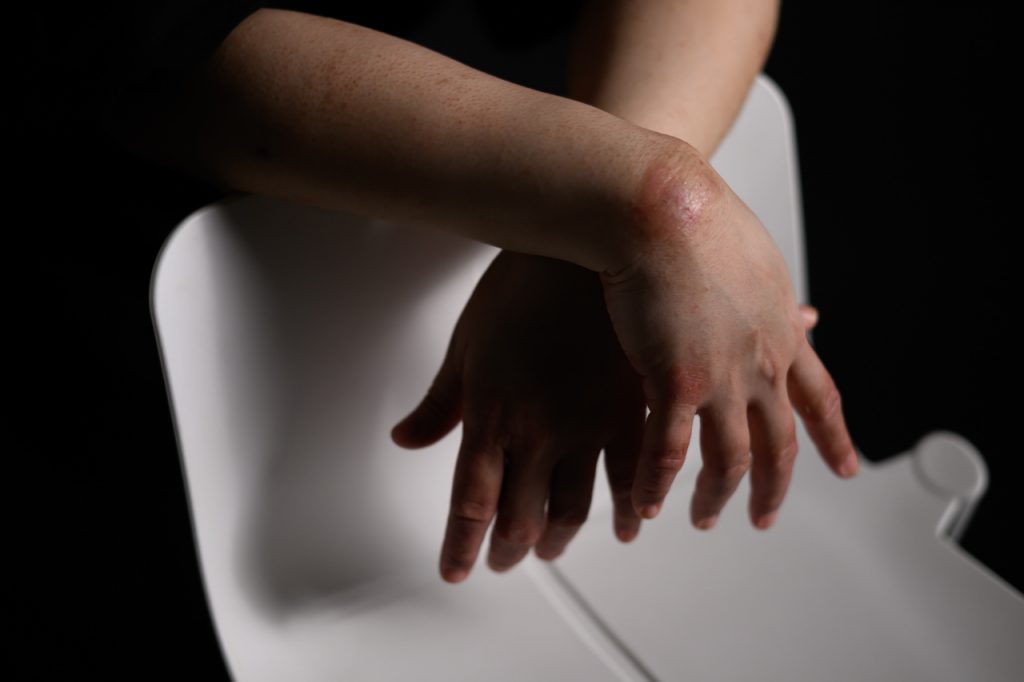
“They don’t really care for me. They just want to either appear smart and feel useful—or profit from it. They’re not really that concerned about my well-being.”
Despite experiencing doubts about others’ intentions, Ursula presses on with her advocacy of public education on eczema and maintaining the Eczema Support Group Singapore on Facebook, which she created in 2012.
Reuben Loo, 24, gets his fair share of stares and unsolicited opinions, too. But he is convinced he has come to terms with his body image.
Breaking Through the Layers
Ursula and Reuben had eczema from early childhood—experiences that toughened them up to face their ongoing social disadvantages today.
Reuben’s grapple with eczema was more than a surface issue. He underwent bouts of depression and suicidal tendencies during his secondary and junior college years, all from the constant bullying by his peers.
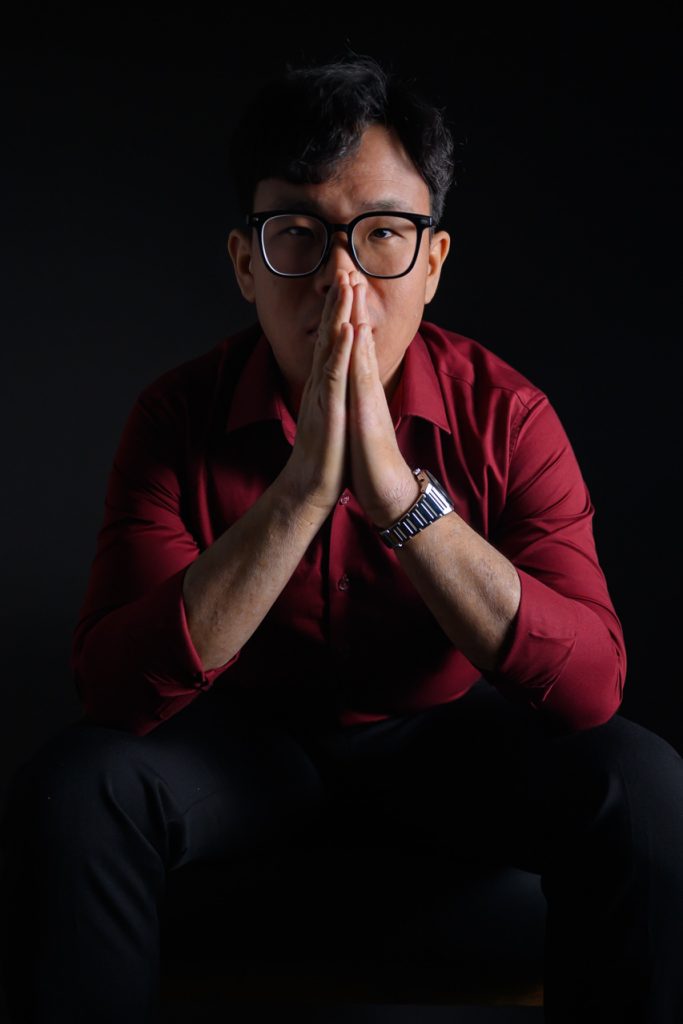
“There were a few classmates who were kind to me, but I always felt inferior to others and isolated myself. I didn’t have good social skills growing up,” Reuben mentions.
“I remember going to school and having severe eczema on my entire body, including my buttocks. I had to sit on the front edges of my chair—otherwise, my pristine white long uniform pants would stick to them.”
“I used stress eating and gaming as a way to cope with my eczema. There wasn’t much physical bullying; it was more emotional. Words like fat fuck.”
His teachers weren’t making things any better, Reuben recalls. They only dished out verbal warnings to his perpetrators, which amounted to nothing.
Despite the challenges growing up, Reuben fondly remembers the glimpses of hope when his family supported him through it all, alongside a fellow business partner who mentored him in his journey through the working world.
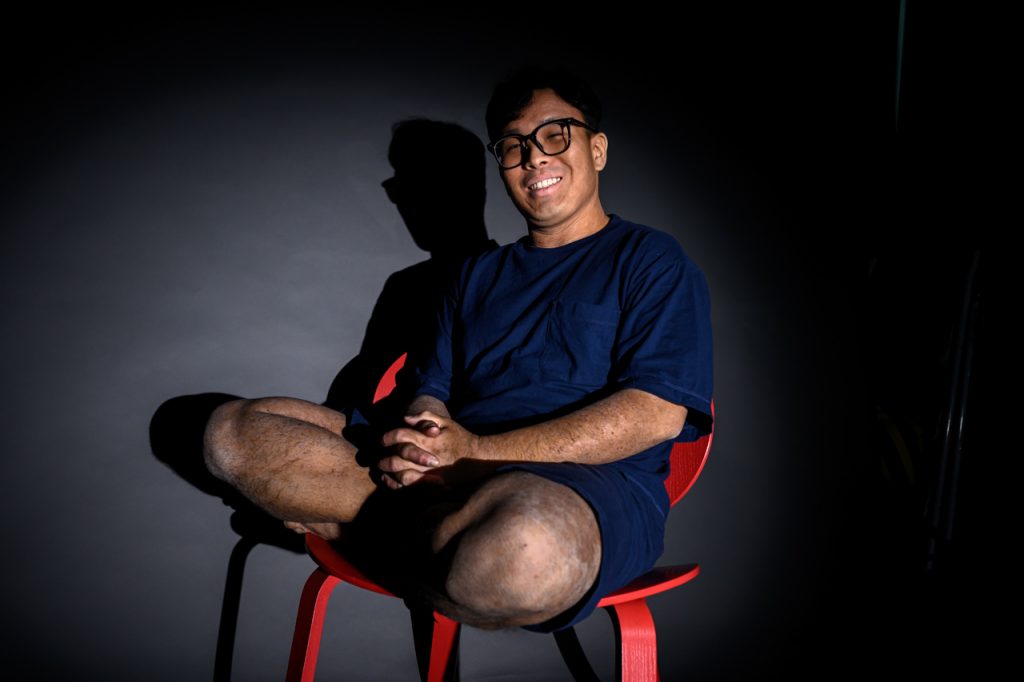
“(My mentor) basically became my best friend. I had literally no friends until then, and he was somewhat like the alpha male of the tribe. I could be accepted for who I was, and that really helped me throughout my worst years.”
Ursula’s eczema experiences growing up were not similar in intensity, though she did face struggles within her family.
Ursula’s father firmly believed that a change of lifestyle was needed to cure her ailments. He would accuse her of not taking a proper shower or chide her for not scrubbing hard enough to remove the dirt causing her eczema.
My parents behaved similarly to hers. “Ben ah, remember to bathe and scrub properly,” rang through my head as Ursula shared her story. Even though they meant well, their advice ended up making my skin worse and left me doubting my ability to take care of myself.
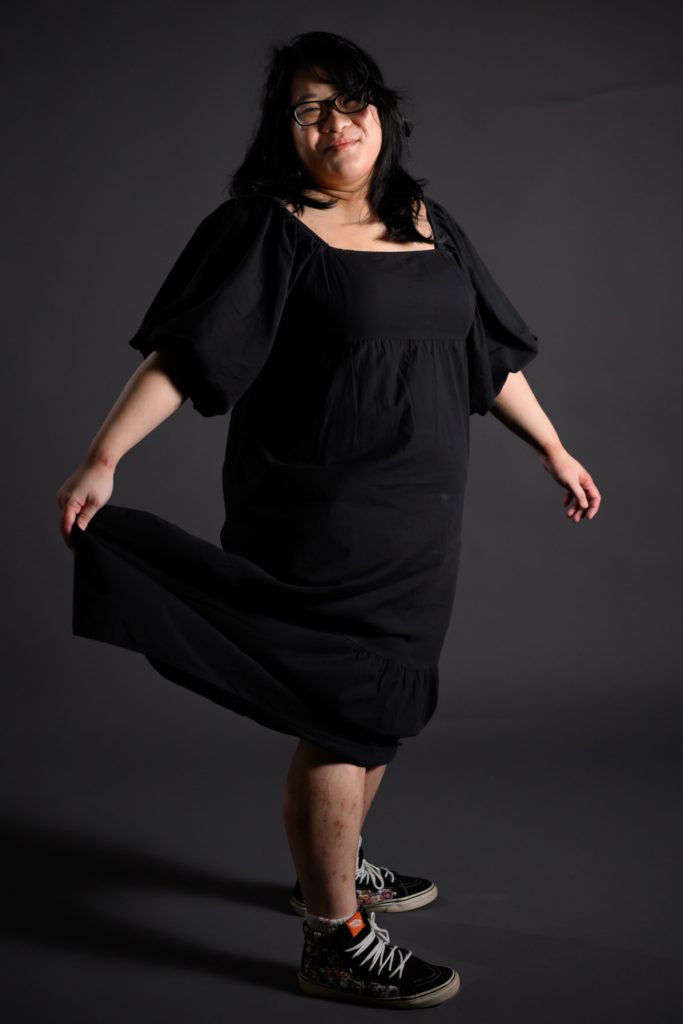
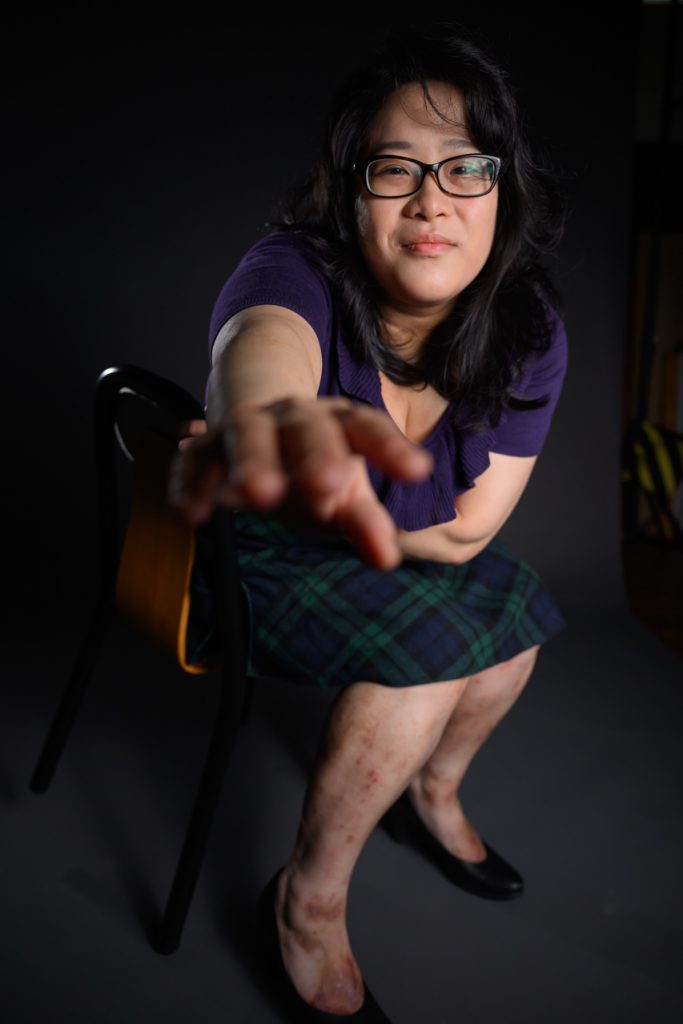
In addition to her ongoing disagreements with her parents, Ursula felt constrained from participating in the outdoor activities her classmates enjoyed, which ultimately prevented her from forming deeper connections with them.
“In primary school, [my classmates] were like, “She’s so lazy,’ or ‘What’s so special about her she cannot do’, or ‘Oh, she’s so fragile’.”
As for Bryner, his brush with eczema came at a later age in his upper secondary school years (not-so-coincidentally, the age of wearing long pants for school). His interest in basketball became a liability, and everything went downhill from there.
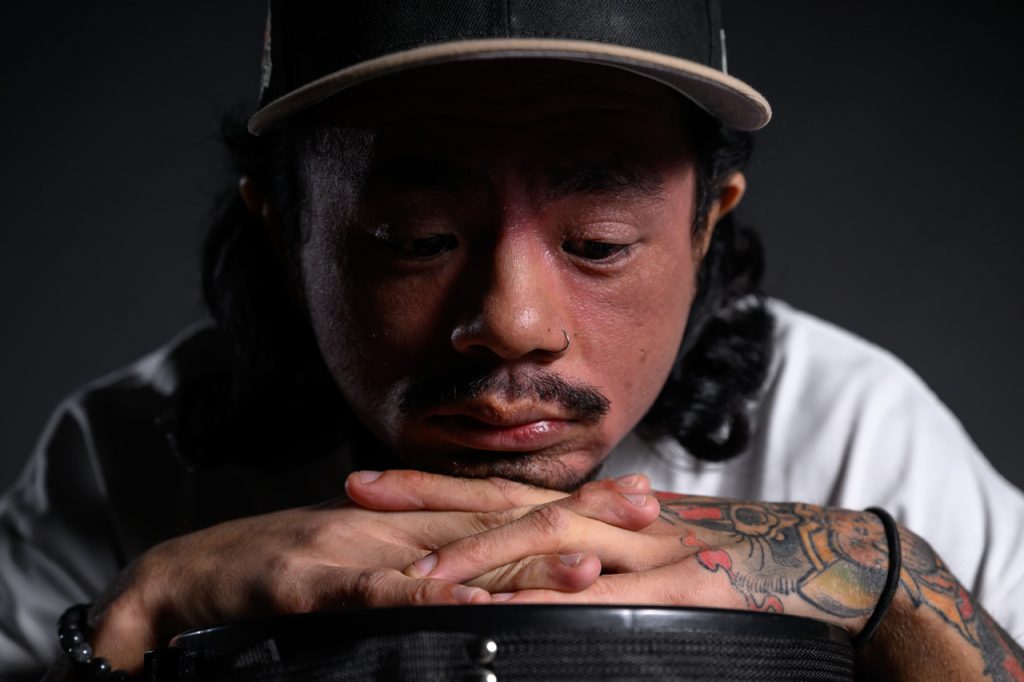
“During ITE days, I wore skinny jeans to look cool in school. Then I realised that the wounds started sticking to the jeans, but I still continued wearing them.”
“Did you prioritise fashion over comfort then?” I ask.
“Of course,” he says.
But there’s a hidden psychological toll to eczema. At home, Bryner has taken measures to ignore the state of his skin.
“I haven’t looked in a mirror for the longest time. And in my room, I always pull down the curtain because I hate seeing the sunlight shining through. Because I will see all my dead skin.”
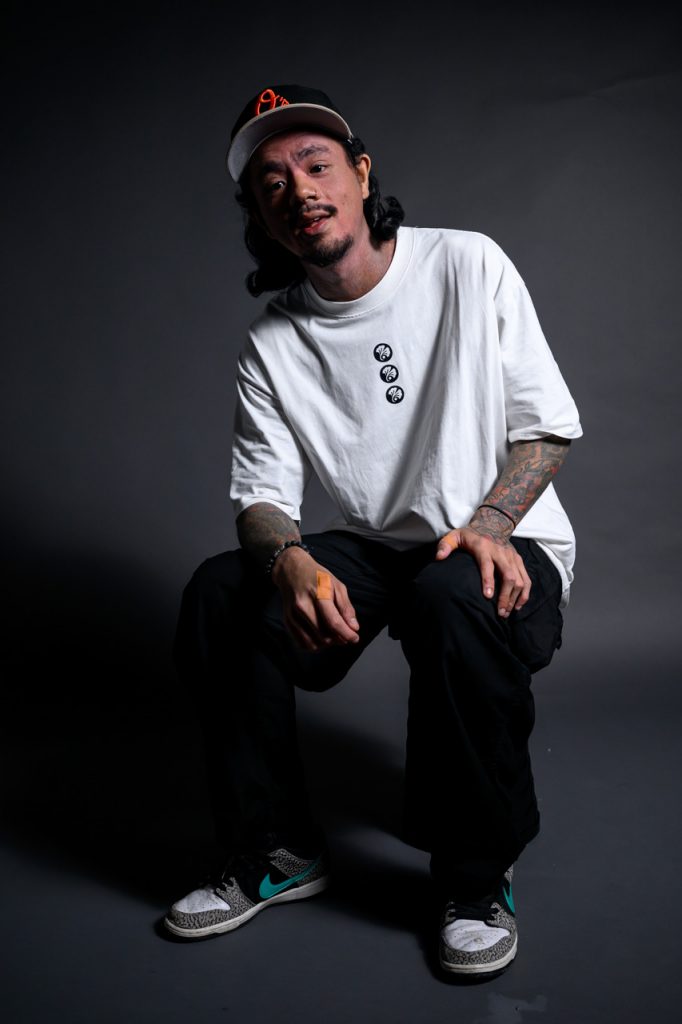
The Layers We Leave Behind
What is normal to non-eczema-ridden folks is a dream for those living with it. Due to their condition, these three have given up so much just to find comfort in their own skin.
Ursula wishes to be more active and have more outdoor experiences. She craves going on nature walks, swimming (the chlorine does untold damage to her skin), and even trying out for the Singapore Armed Forces Women’s Boot Camp.
“I’ve heard so many stories about National Service, and it’s something I’ve never experienced. But I can’t even risk spending a few hours in the heat, let alone a day. The bonding aspect intrigued me.”
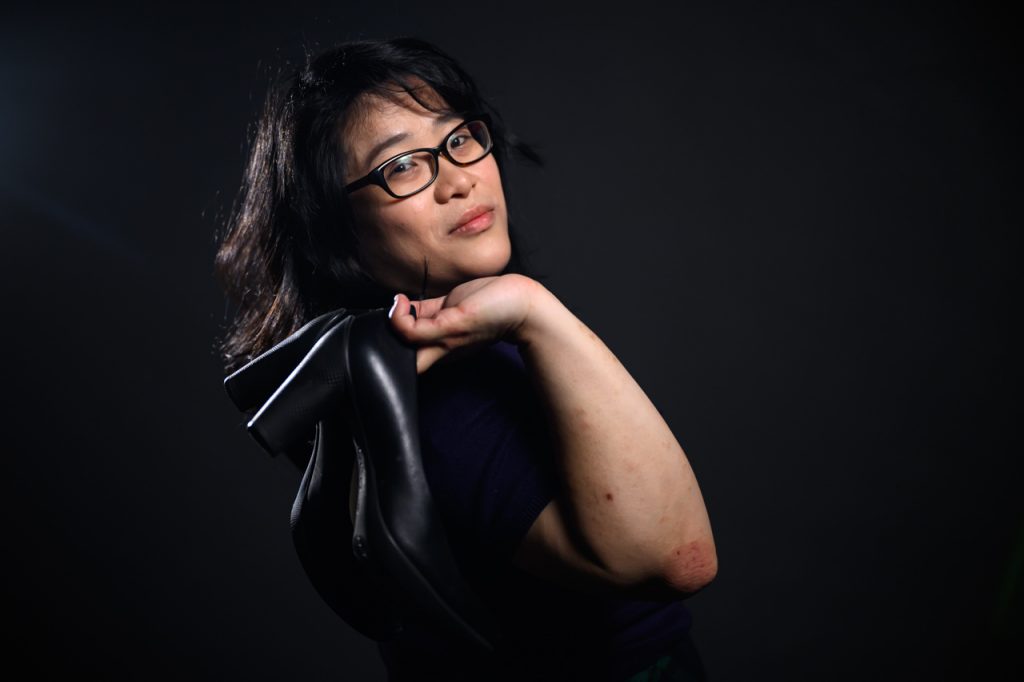
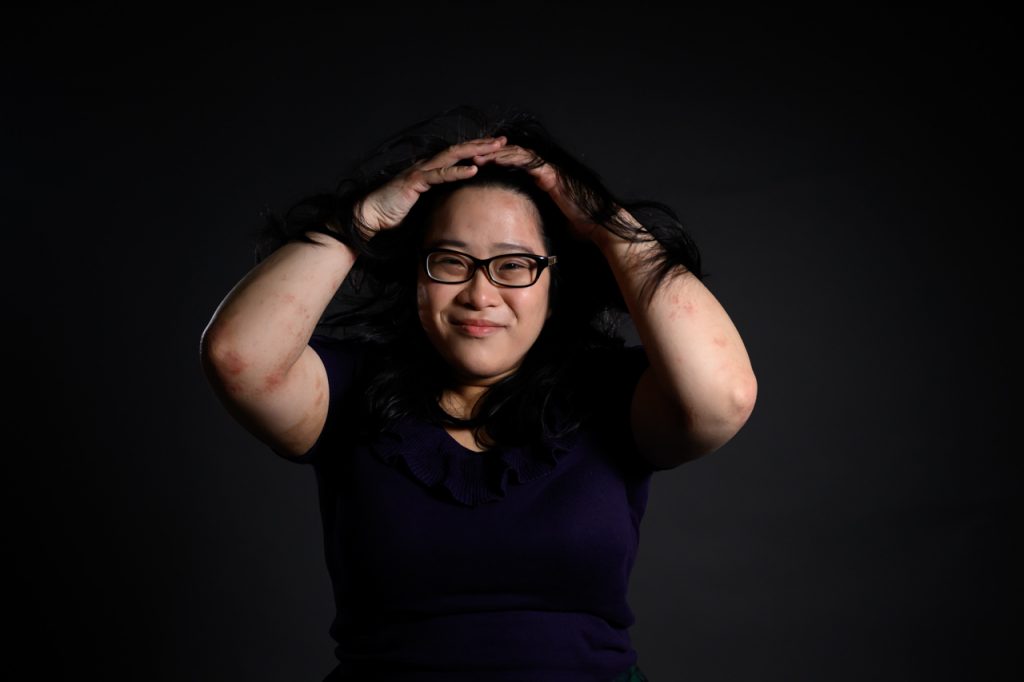
Reuben wants his freedom of choosing the food he craves—the smallest bit of sugar, dairy or eggs will cause a skin flare-up.
Then, of course, there’s the desire to travel without worrying about packing a tonne of clothes and creams to prevent aggravation of his eczema.
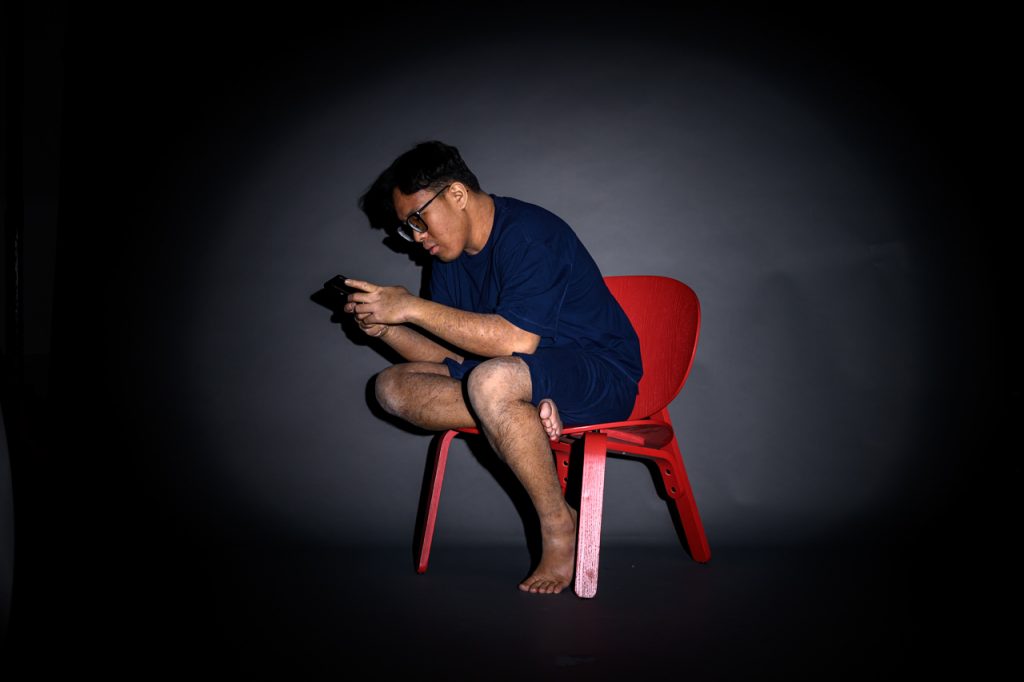
In Singapore, navigating eczema becomes intertwined with wardrobe selections. The nature of the condition limits what one can wear to stay comfortable in this perpetual 30°C heat.
When I asked them to dress up for the shoot, the three of them carefully opted for garments that didn’t exacerbate itching—all while aiming to avoid drawing undue attention from passersby.
Ursula’s desire for a wider variety of clothes in her wardrobe was clear.
“If I’m running around for errands, I want to look cute also mah. I used to wear shorts, but now I’d rather not. It’ll look like I’ve got thousands of cat scratches.”
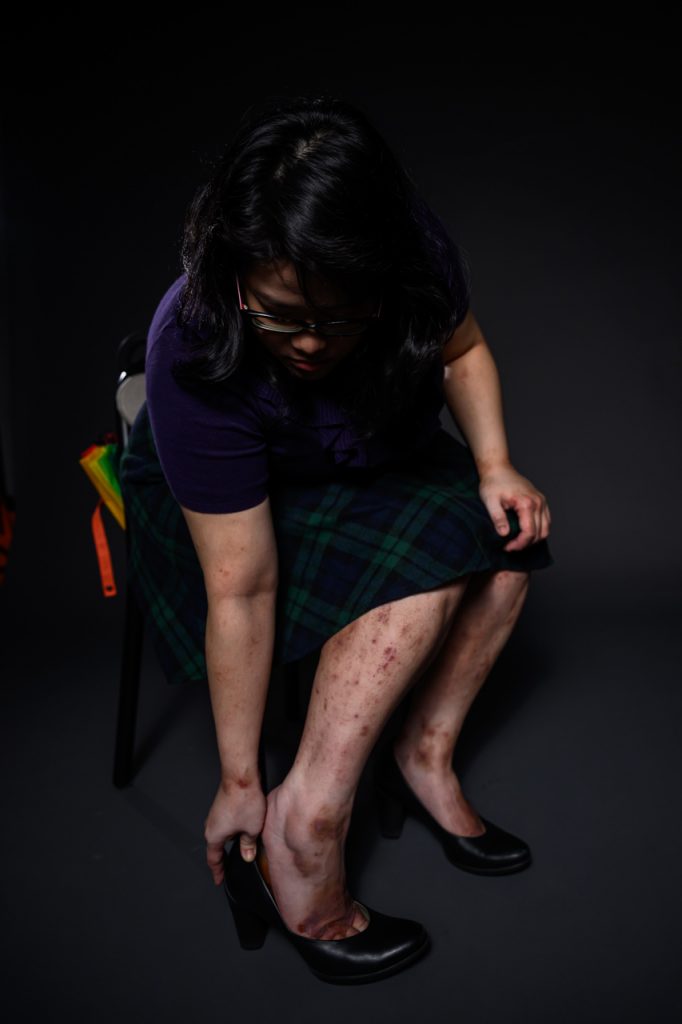
For the most part, Bryner doesn’t let his skin condition define him or hold him back—life simply goes on for him.
In addition to his tattoos, he was a guitarist for melodic hardcore outfit False Plaintiff and shot photos and music videos for other bands in the local scene.
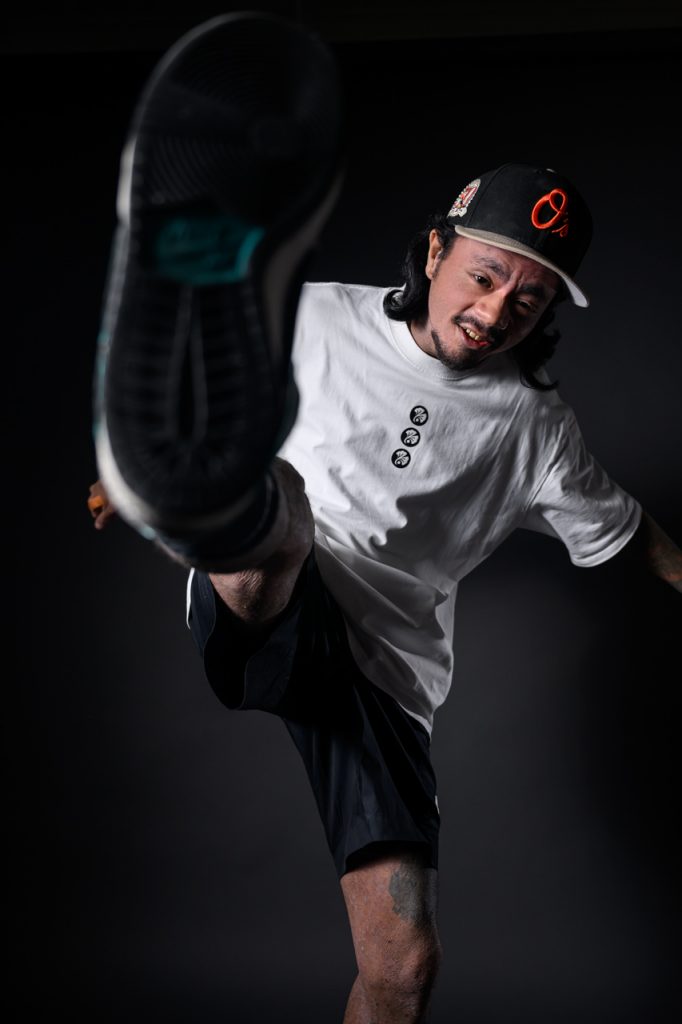
“During my EMONIGHTSG shoots, I have to approach people and take group photos. I really don’t want to do it, but I have to,” he says.
“I counter the reluctance by drinking. But if I drink too much, I’d end up scratching like crazy when I’m home, and I can’t sleep.”
Skin Deep
As I wrapped up the photo shoot, I felt nothing but immense respect for them. They exhibited remarkable courage in revealing not just their skin but also their stories, shedding light on the daily trials of living with eczema.
Amidst the constant diligence demanded by skincare routines, dietary considerations, and clothing selections, there is a resounding call for compassion and empathy from the people around them.
I wonder how this can be further translated into our behaviour towards those who are visibly or imperceptibly different from us. True body positivity involves not just tolerating but celebrating each individual’s uniqueness. Beyond simply scratching the itch of discomfort, everyone needs to feel relaxed in their own skin.


